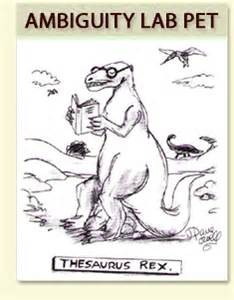As a young girl, I have always loved language, especially new words and I was extremely fascinated with words that had the same meaning. Which at a young age, I wanted a dictionary and a thesaurus and loved learning new words and formulating complex sentences.
Our book, By Goldstein, in Chapter 11, covers many areas of language, which only added to my desire to know and learn words and process language. As stated, it discusses “lexical ambiguity”, I mentioned above, that “words can have more than one meaning”. Which as we all might recall one of the classics was: they’re, their, and there. (Goldstein, p.. 303)
I also loved listening and grasping the context of the word being used. Words always fascinated me. Without knowing the context though, there would indeed be great confusion or misunderstanding. Things would become misconstrued!
For me, I loved to study the words and their meanings. I would write, which would be practice, as well utilize so I clearly understood and properly used the context of the word correctly. When formulating the sentences with the proper syntax, things can be understood!
To this day, I STILL love words and language! I enjoy writing and getting the context of new words.
I enjoyed learning much more in that chapter on language and the different processes like lexical priming, and syntax first approach. It showed me a deeper side to what I already loved. I appreciate that!
Even the article, “The difference between Lexical Ambiguity and Structural Ambiguity in English language, it refers to “ambiguity” itself as a “word or expression that can be understood in two or more possible ways”, which makes the English language one of the most difficult to learn. (scrib’d.com, 2016)
This is also why as our book says, and goes into the Human language IS special, which I completely concur! The way we learn and process words alone, to create use-able language, and being to communicate is fascinating!
I even love my husband because he loves “words” and learning them and using and applying them, especially to formulate and be careful of the syntax of the sentence structure so others can understand what it is you are trying to convey. We both very much enjoy that, but as I mentioned, I truly appreciate this course, especially the chapter on language for other factors that I had not known previously! Made it even more fascinating. 🙂
~~Yes, call me a “word” junkie! LOL









